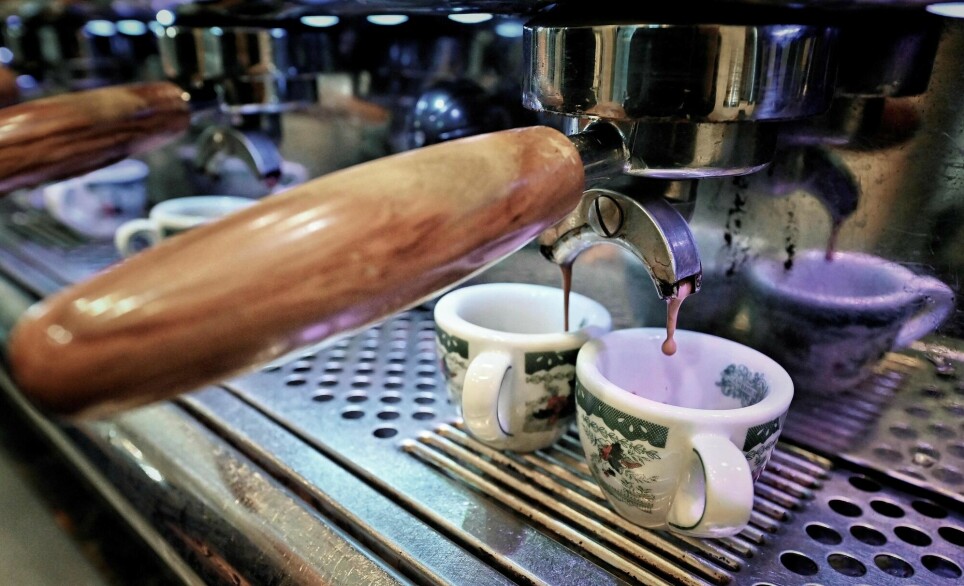
Too much espresso increases cholesterol - especially if you are a man
If you average more than two espressos a day, you might want to start thinking about filtered options, say the researchers behind a new study.
More than 20 000 Norwegians, aged 40 or older, have taken part in the study on coffee and cholesterol.
“We found that drinking 3-5 cups of espresso per day led to an increase in cholesterol, especially for men”, says Professor Maja-Lisa Løchen in a press release (link in Norwegian).
Løchen is Professor of Preventive Medicine at UiT The Arctic University of Norway in Tromsø. The study on espresso and cholesterol was recently published in the journal Open Heart.
Espresso is not only had as espresso, but is also the coffee used in cappuccinos, lattes and coffee capsules.
Hard to explain the gender difference
You might not know this, but Norwegians drink a lot of coffee. According to Statistics Norway, the average citizen above the age of 18 drinks four cups of coffee per day. This places Norway at the top of the lists when it comes to coffee drinking per capita in the world.
The women in the study averaged just under four cups a day, while the men drank nearly five.
Compared to those who drank no coffee, female coffee drinkers had higher levels of cholesterol in their blood. Male coffee drinkers however, had nearly twice as high levels as the women.
“There are so far no obvious explanations to this gender difference in cholesterol response to coffee drinking,” says Løchen.
Drinking more than six cups a day of mainly French press also gave higher cholesterol levels – this however gave nearly the same increase for both men and women.
No standardized cup size
Three natural chemicals in coffee increase the level of cholesterol in your blood. These are called diterpenes, cafestol and kahweol.
Because espresso is made without a filter, there will be more of these chemicals in the coffee.
The participants in the study answered questions of what type and how many coffees they drank per day: none, 1-2 cups, 3-5 cups and 6 or more cups.
However, the researchers point out that no standardized cup size was used in the study. This might be good news for Italians.
“Norwegians tend to drink from larger espresso cups than for instance Italians”, says Løchen.
Different types of espresso may also have different levels of chemicals, depending on whether they were made by coffee machines, from capsules or brewed in moka pots. New studies should take this into consideration, according to Løchen.
No coffee is death
The Professor is not in the business of making people quit coffee.
“Coffee gives so much joy. That cup of coffee is so important. If you’re in a cabin and there’s no coffee there…I mean, that’s death!” she says.
The press release even mentions experimental studies that show protective effects from the same cholesterol increasing chemicals.
Still, if you already know that your cholesterol levels are high, perhaps limiting your intake to 1-2 espresso’s a day will keep the doctor away.
“We want people to have this information so they can make an informed choice,” says Løchen.
However:
“If you already have high cholesterol levels or you’ve had a heart attack, you should stick to filtered coffee. It affects cholesterol levels the least,” she says.
































